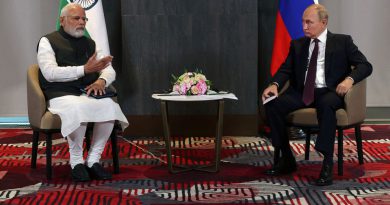Iran records 4,585 coronavirus deaths as restrictions eased
Dubai (Reuters) – Iran’s death toll from the coronavirus outbreak has risen to 4,585, with 111 more overnight, a health ministry official said on Monday, adding the total number of infected cases had reached 73,303 in the most-affected Middle Eastern country
On Sunday, the government lifted a ban on travel between cities within Iranian provinces, while restrictions on trips between provinces will end on April 20, state media reported.
“45,983 of those infected with the virus have recovered … There were 1,617 new infected cases in the past 24 hours,” Alireza Vahabzadeh, an advisor to Iran’s health minister, said on Twitter.
Health Ministry spokesman Kianush Jahanpur told Iranian state TV that 3,877 of those infected with the coronavirus were in a critical condition.
State TV showed streets packed with people, crowded buses and subway cars in several cities as so-called low-risk businesses – including many shops and workshops – re-opened across Iran from Saturday, with the exception of the capital Tehran, where they will resume activities from April 18.
Some health officials and experts have warned the government about a second wave of COVID-19 that they said could hit Tehran hard. Alireza Zali, head of the government-led Coronavirus Taskforce of Tehran, called on people to stay at home.
Businesses and services seen as high-risk, including theatres, swimming pools, saunas, beauty salons, schools, shopping centres and restaurants, have yet to re-open.
Iran’s clerical rulers, who have been struggling to curb the spread of the disease, are concerned that measures to limit public activities could wreck an economy which has already been battered by U.S. sanctions.
“We have to fight against the coronavirus and the virus of sanctions together,” government spokesman Ali Rabiei said in a televised weekly news conference.
Washington reimposed sanctions on Iran in 2018, when U.S. President Donald Trump withdrew the United States from a 2015 nuclear deal with six major powers.
Iranian authorities have blamed the sanctions for hampering their efforts to combat the disease. However, Iran’s leaders have rejected Washington’s offer of humanitarian assistance to contain the coronavirus outbreak.
The effect of U.S. sanctions on Iran’s new coronavirus response will be remembered by the Iranian people, Iran’s Foreign Minister Mohammad Javad Zarif tweeted on Monday.
“Despite U.S. sanctions, Iran has made significant progress in fighting the pandemic, thanks to its human & scientific resources, and friends abroad,” Zarif wrote.
“#Covid19 was (an) opportunity for the U.S. to kick its addiction to sanctions. Instead, it will now live in infamy in the memory of our people.”


